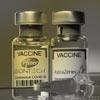Rising Colon Cancer Rates in Adults Under 50: Doctors Voice Alarm

News Synopsis
On Sunday, experts raised alarms over the increasing incidence of colon and colorectal cancer among adults under 50 in India. This trend has become particularly worrisome as colon cancer now ranks as the seventh most prevalent cancer in the country. Urban centers like Delhi, Mumbai, and Bangalore are witnessing notably higher rates of this disease. According to the Indian Council of Medical Research (ICMR), the age-adjusted incidence rates stand at approximately 4.3 per 100,000 men and 3.4 per 100,000 women. Colorectal cancer accounts for roughly 8.2 percent of all cancer-related deaths in India.
Understanding Colorectal Cancer
Colorectal cancer originates in the colon or rectum, parts of the digestive tract. It typically begins as small, benign clumps of cells known as polyps, which can eventually progress to cancerous growths over time. Traditionally more common in individuals aged 50 and above, recent data indicates a significant shift, with younger adults now facing a higher risk. A 2023 study by the Delhi State Cancer Institute (DSCI) observed that the incidence of colon cancer is increasingly affecting individuals aged 31 to 40 years, as opposed to those over 50.
Contributing Factors
Several factors contribute to the rise in colorectal cancer cases, including diet, lifestyle, genetics, and environmental influences. Historically associated with older age groups, colorectal cancer is now increasingly affecting younger adults. Dr. Neeraj Dhingra, a Consultant in Radiation & Clinical Oncology, highlighted this shift in an interview with IANS, noting a 20.6 percent increase in cases among those under 50.
Importance of Early Detection
Early detection is crucial for effective treatment and improving survival rates. Symptoms of colorectal cancer can include changes in bowel habits (such as diarrhea or constipation), blood in the stool, abdominal pain or discomfort, unexplained weight loss, and fatigue. Dr. Dhingra emphasized that due to the rise in cases among younger adults, healthcare providers should consider colorectal cancer as a potential diagnosis even for patients under 50 presenting with these symptoms.
Survival Rates and Challenges
In India, the five-year survival rate for colon cancer patients ranges between 40-50 percent, which is significantly lower compared to many Western countries. This disparity is largely attributed to late diagnoses and limited access to healthcare services. Dr. Jagannath Dixit, a Senior Consultant in Surgical Oncology at Aster RV Hospital, stressed the urgency of addressing this alarming trend and highlighted the need for immediate action from both the medical community and public health policymakers.
Preventive Measures and Screening
Experts are advocating for preventive measures and regular screening to mitigate the risk of colorectal cancer. Prevention strategies include maintaining a high-fiber diet, engaging in regular exercise, and avoiding smoking and excessive alcohol consumption. Dr. Dixit pointed out that these lifestyle changes are crucial for reducing the incidence of the disease.
Treatment Options
Treatment for colorectal cancer typically involves a combination of surgery, radiation therapy, chemotherapy, targeted therapy, and immunotherapy. Supportive care is also essential to manage the physical and emotional impact of the disease. The choice of treatment depends on various factors, including the stage of cancer, overall health of the patient, and individual preferences.
Call for Immediate Action
The rising trend of colorectal cancer among younger adults in India requires urgent attention. Both preventive and diagnostic measures need to be emphasized to address this growing health concern. Healthcare providers and policymakers must work together to enhance early detection, improve treatment options, and promote lifestyle changes to combat the increase in colorectal cancer cases effectively.
This comprehensive overview underscores the critical need for increased awareness, preventive strategies, and improved healthcare access to address the concerning rise in colorectal cancer among adults under 50 in India.
Conclusion
The rising incidence of colorectal cancer among adults under 50 in India is a pressing health concern that demands immediate action. With colon cancer now ranking as the seventh most prevalent cancer and urban areas experiencing higher rates, it is clear that both lifestyle and genetic factors are contributing to this troubling trend. The shift in colorectal cancer incidence to younger age groups underscores the necessity for increased awareness, early detection, and preventive measures. As survival rates in India lag behind those of Western countries due to late diagnoses and limited healthcare access, it is crucial for healthcare providers and policymakers to prioritize regular screenings, promote healthy lifestyle choices, and enhance treatment options. Addressing these issues effectively will be key to combating the growing prevalence of colorectal cancer and improving outcomes for patients across the nation.
You May Like









